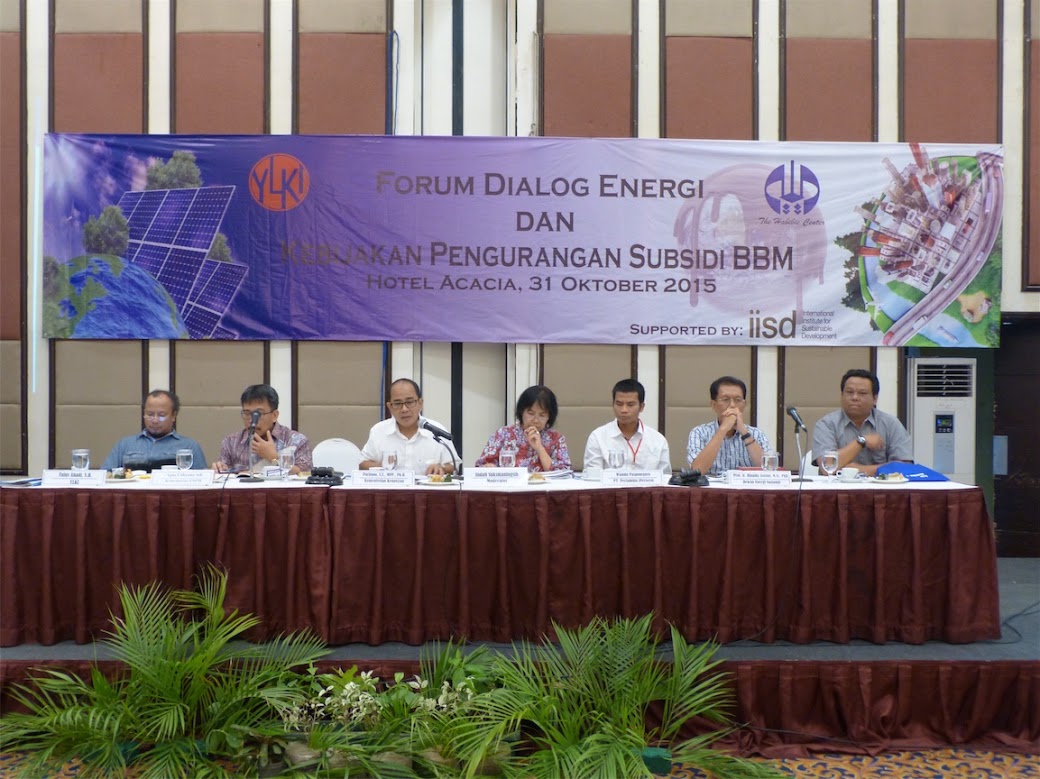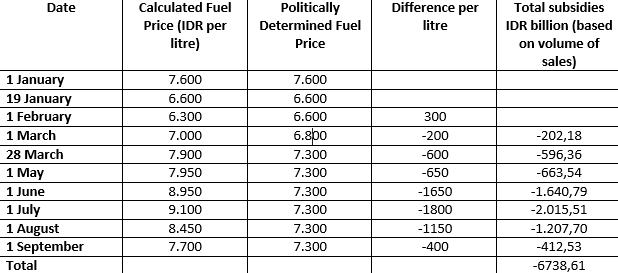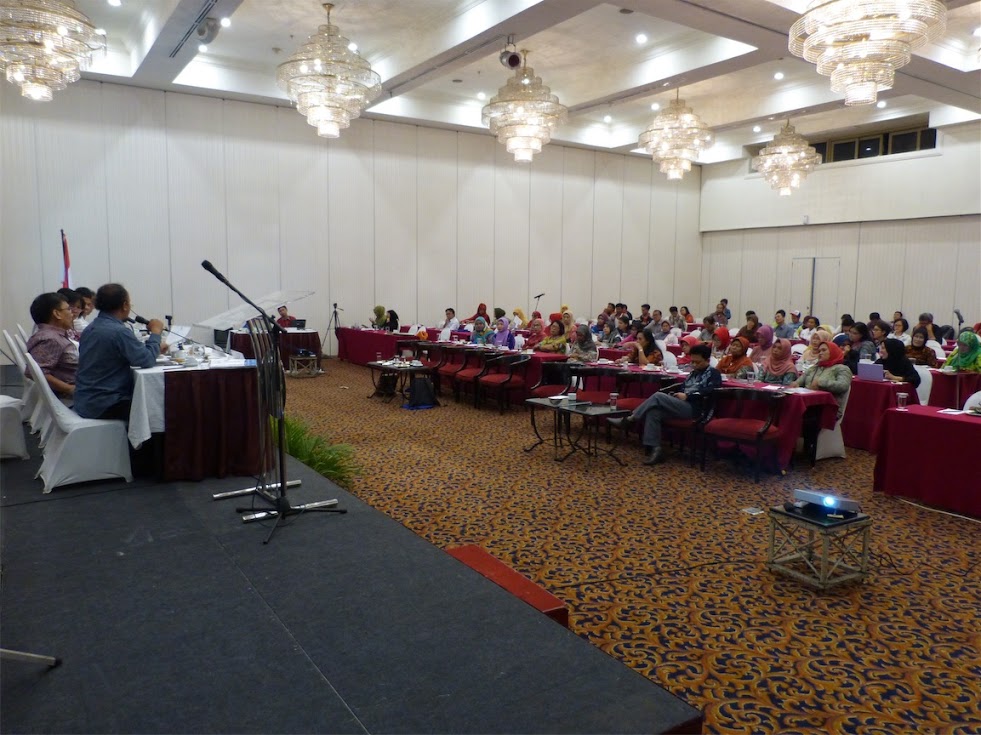Talking Fossil Fuel Subsidy Reform in Indonesia
Jakarta—31 October—As part of its work in Indonesia, the Global Subsidies Initiative (GSI) recently supported The Habibie Center and consumer’s association Yayasan Lembaga Konsumen Indonesia (YLKI) in facilitating a large public dialogue session to discuss Indonesia’s recent efforts to reform fossil fuel subsidies.
The event is part of a two-year work program, supported by the government of Denmark, that aims to improve energy pricing policy by facilitating dialogue and information-sharing among policy makers and civil society organisations (CSOs), at the same time as building the capacity of civil society to engage in national debate on fossil-fuel subsidy reform.
The event brought together Indonesian government officials, civil society organizations, media and other relevant stakeholders to discuss a wide range of issues around Indonesia’s recent policy changes. Panelists included Ir. Agus Cahyono Adi, M.T., Director of Oil and Gas Program Development, Ministry of Energy and Mineral Resources (MEMR); Rinandy Dalimi, Ph.D., Commissioner, National Energy Council (DEN); Parjiono S.E., MPP, Ph.D., Head of Macro Economic Policy, Fiscal Policy Agency, Ministry of Finance; Tulus Abadi, Executive Director, YLKI; and Zamroni Salim, Economic Researcher, The Habibie Center. The event was moderated by Indah Suksmaningsih, Former Executive Director, YLKI.

The first speaker of the day, Mr. Tulus Abadi, took the opportunity to highlight results from YLKI’s recent survey analysis, investigating real consumer prices for fuel across 5 regions in Indonesia. The survey found—among other things—that while levels of fuel consumption are somewhat uniform, fuel prices vary significantly from region to region. Further to this, Mr. Abadi noted that in some rural areas, fuel prices were found to be significantly higher than in urban areas, with some retailers charging around IDR 20.000 (US$ 1.40) per liter of diesel, compared to the official price of IDR 6.700.
Next in line was Mr. Prawiraatmaja, MEMR. Introducing the official fuel pricing mechanism, Mr. Prawiraatmaja noted that the price formula itself is built upon a base price that also includes the costs of acquisition, distribution and storage. He further added that the existing price mechanism allows for fuel prices to change every 3 months, taking into account average fluctuations in international fuel prices and exchange rates. Mr. Prawiraatmaja also offered an overview of the difference between the politically determined price for Premium Gasoline (Non Jamali) and the calculated price (i.e. the price of Premium Gasoline as according to the price formula). This shows that—despite the official removal of subsidies to Premium in January 2015, with the exception of distribution costs outside the Java-Bali-Madura area—Indonesia’s new pricing policy has in fact been incurring de facto subsidies since March 2015. A summary of this is presented in the table below.

Finally, Mr. Prawiraatmaja presented MEMRs fuel subsidy projections until 2019. These indicated that MEMR expects electricity subsidies to increase from IDR 66.15 trillion (US$ 4.6 billion) in 2015 to IDR 89.41 (US$ 6.2 billion) in 2019. Subsidies for gasoline, diesel and LPG were estimated to remain more or less constant between 2015 and 2019 at around IDR 64 trillion (US$ 4.4 billion).

The seminar also saw participation from Indonesia’s Ministry of Finance. Introducing the 2016 State Budget, Mr. Parjiono pointed out that the government is working hard to create fiscal space and stimulate growth. In this regard, Mr. Parjiono recognized recent reform efforts and underlined the importance of a well-functioning and competitive energy sector in order to support GDP growth. Finally, Mr. Parjiono underlined that the government plans to increase spending on areas such as education and infrastructure in 2016.
Mr. Zamroni, the Habibie Center, was last in line to present the findings of the Habibie Center’s work on fossil fuel subsidies. Based on an online survey with 876 respondents, the Habibie Center investigated the public response towards the government’s decision to transition away from subsidies and towards market pricing of fuel. The survey found that almost 68% of the respondents did not agree with the notion that fuel prices should be set according to market mechanisms and almost 30% of the respondents found market pricing of fuel to be in violation of their constitutional rights. The study also found that 52% of the respondents consumed less fuel (for transportation) as a direct response to higher fuel prices.
Following the presentations, panelists engaged in a lively and constructive discussion with broad participation and questions from the audience.
The seminar was well covered by several Indonesian media outlets. Examples can be found via the links below:
For any additional information about the seminar or GSIs work on fossil fuel subsidy reform in Indonesia, please do not hesitate to contact Lasse Toft at ltchristensen@iisd.org or Lucky Lontoh at lucky.lontoh@gmail.com.
